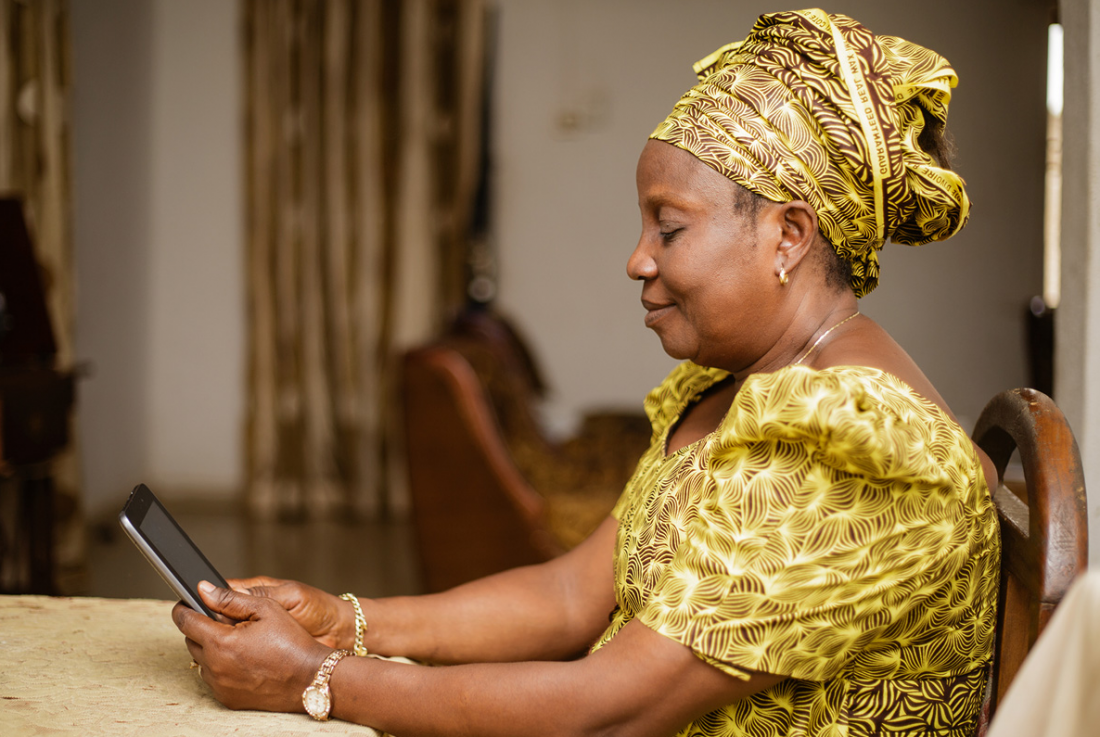Scaling Up Homegrown Health Innovations in Nigeria
Date

A client logs onto mDoc, a mobile and web-based service that partners with hospitals to help people manage their diabetes and high blood pressure. Clients create personalized health plans and sign up for digital nudges and meetings to monitor their care.
One lost her father to chronic hypertension that he had never learned to manage. One realized how much medicine was being discarded or wasted in his country though others desperately needed it. Another helped a nurse deliver a baby in a van at the side of a rural road, far from any health facility. Two observed how many women were dying in their country’s remote regions, whether from breast and cervical cancer or a lack of emergency blood supplies after they gave birth.
These five innovators—from Nigeria, Senegal, India, and Cameroon—designed technological solutions to these problems and founded organizations to carry them forward. Their enterprises have all won awards and accolades, most recently USAID’s Inclusive Health Access Prize in September 2019 for evidence-based solutions that increase the accessibility, affordability, accountability and reliability of essential health care. Now they are working with USAID’s Local Health System Sustainability Project (LHSS) to sustainably scale up their businesses and reach more people with their vital health services.
Asking questions, offering support
“Often social enterprises are under pressure to grow as quickly as possible, and they don’t reflect on what makes sense for their businesses,” said April Warren, LHSS senior technical advisor for private sector engagement, who is overseeing tailored technical assistance programs for the five organizations. “Having someone from the outside ask questions about their business model, and offer support in the area they care about the most, is enormously useful.”
In spring 2020, LHSS worked with all five entrepreneurs to determine their business priorities and matched them with LHSS advisors and independent consultants to help them meet their identified goals. The experts are now working with the enterprises on the following needs.
- mDoc. “In Africa, we are seeing millions of people dying too early from chronic diseases because they don’t have access to the care they need,” said mDoc CEO Nneka Mobisson. She founded the Nigerian mobile and web-based service to help people manage their chronic, noncommunicable diseases through digital nudges and meetings. To scale up its network, mDoc has prioritized strengthening its human resource systems and organizational structure—including creating a new performance management system.
- GIC Med. The GIC Med telemedicine platform and digital microscope enables community health providers in Cameroon to remotely screen and diagnose breast and cervical cancers, so rural women don’t have to travel far for medical attention, said founder Conrad Tankou. GIC Med partners with health centers in rural areas, and needs to strengthen and standardize its approach to expanding screening services into new facilities.
- JokkoSanté. This Senegalese digital payments platform, founded by CEO Adama Kane, enables patients to buy drug prescriptions securely with points rather than cash and allows pharmacies and health facilities to track prescriptions, payments, and billing. The enterprise currently relies on corporate social responsibility programs or diaspora contributions. To expand operations in Senegal and neighboring Mali and Cote d’Ivoire, JokkoSanté needs to identify new customer segments and sharpen communications of its value proposition.
- Piramal Swasthya. This established Indian management and research institute provides community outreach and telemedicine to the country’s underserved and marginalized populations. “India has not failed at innovation, but we need now to scale that innovation,” CEO Vishal Phanse said at the 2019 USAID award ceremony. Piramal Swasthya is seeking to develop new financing strategies to diversify its funding sources and support continued growth and innovation.
- Infiuss. This Cameroonian enterprise, founded by CEO Melissa Bime, uses a sourcing database and mobile platform to easily find and transport blood to patients or hospitals in need. This promising startup needs additional financing to grow its operations. It is working with LHSS to prepare for private investment, including by undergoing an investment readiness assessment and identifying potential target investors.
